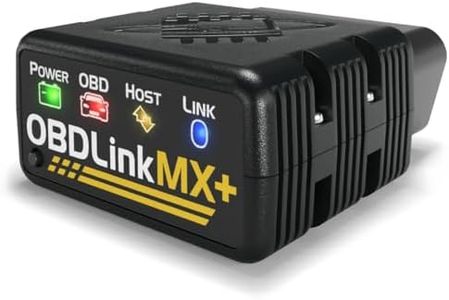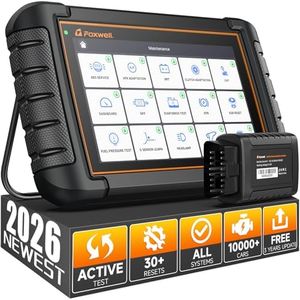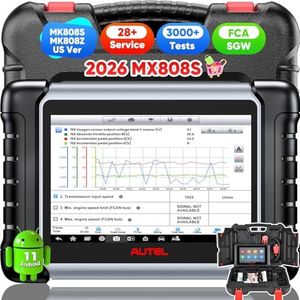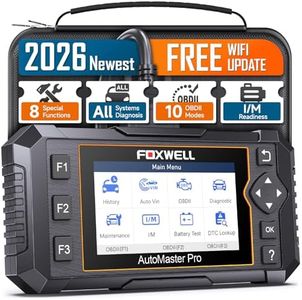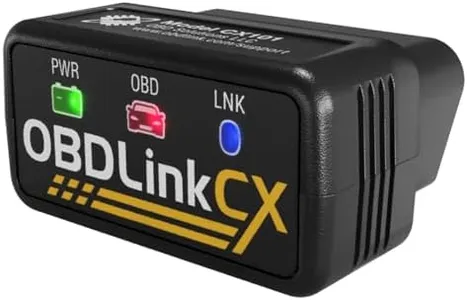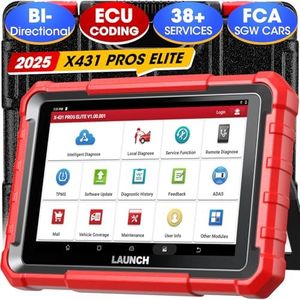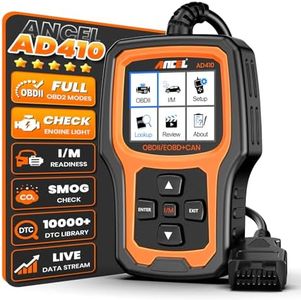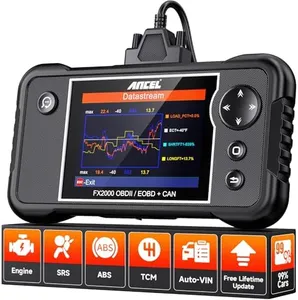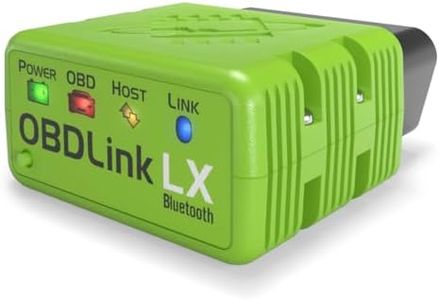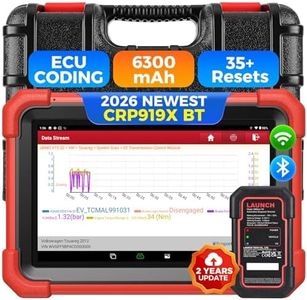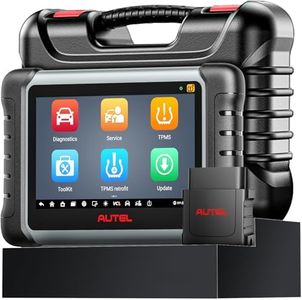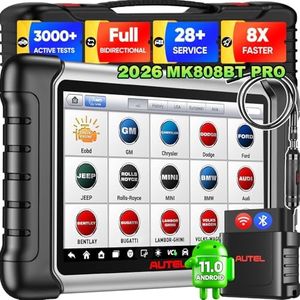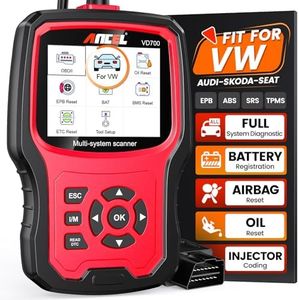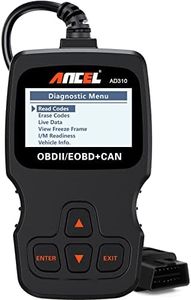We Use CookiesWe use cookies to enhance the security, performance,
functionality and for analytical and promotional activities. By continuing to browse this site you
are agreeing to our privacy policy
10 Best Car Scanners
From leading brands and best sellers available on the web.By clicking on a link to a third party's website, log data is shared with that third party.
Buying Guide for the Best Car Scanners
Car scanners, also known as OBD2 (On-Board Diagnostics) scanners, are handy tools that allow you to read and interpret error codes from your vehicle’s onboard computer. These devices can help you understand why your check engine light is on and provide insights into your car’s health. Choosing the right scanner depends on your car's make and model, your experience level, and what types of diagnostics you expect to do. Start by assessing how deep you want to go—some scanners just read codes, while others offer advanced diagnostics or reprogramming functions.CompatibilityCompatibility refers to whether the scanner can work with your car's make, model, and year. Since most vehicles made after 1996 use the standardized OBD2 port, many scanners will work, but some advanced features are only available on certain brands. Basic scanners usually support almost all cars, but if you want features beyond basic code reading or own an imported or older car, double-check compatibility. To pick the right one, make sure your vehicle is supported; if you own more than one car, consider a scanner that covers a broad range.
Type of ScannerThere are two main types: basic code readers and advanced diagnostic tools. Basic code readers are simple and easy to use—they show error codes and sometimes basic information. Advanced scanners offer more detailed diagnostics, let you monitor live data, run special tests, or reset systems. If you’re a beginner or just want to check engine codes, a basic scanner will suffice. If you do your own repairs or want to see more about the car’s workings, pick an advanced model.
Display FeaturesCar scanners may have basic screens, more advanced color displays, or use your smartphone as the interface via Bluetooth. Basic screens are straightforward but limited in detail, while advanced screens or smartphone apps offer better visuals and graphs. If you prefer simplicity and portability, choose a simple display. If you want to see live data clearly or enjoy more interactive use, a scanner with an advanced display or app-based system may suit you.
Live Data and GraphingLive data lets you see real-time information from your car’s sensors, like engine RPM, temperature, or oxygen sensor readings. Some scanners only show codes, while others provide live readouts and even graph them over time. This helps in diagnosing problems that aren’t obvious from error codes alone. If you plan to do more than just check codes and want to see how your car is operating, consider a scanner with live data features. Everyday users may not need this, but enthusiasts and DIY mechanics will find it useful.
Special FunctionsSome car scanners offer special functions such as ABS/SRS (airbag) diagnostics, reset features (like oil or brake lights), or battery registration. These features are usually found in more advanced models and can be very helpful if you plan to do regular maintenance or troubleshooting beyond the engine. If you just want to clear basic codes, you might not need these extras. If you manage more of your car’s upkeep or own different vehicles, special functions can be a deciding factor.
Update and SupportScanners often require updated software to recognize new codes and cars. Some have free updates, while others may charge or require using a computer. Good customer support can also be valuable if you run into issues. If you want peace of mind and up-to-date functions, check how updates work before buying and see if the manufacturer offers good support for troubleshooting.
